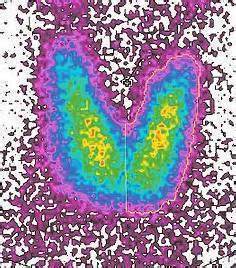Hypothyroid Risks for Infection
 Low Thyroid Condition Predisposes to Death From Infectious Disease
Low Thyroid Condition Predisposes to Death From Infectious Disease
The greatest American Endocrinologist, Broda Barnes MD, was an astute clinician who observed the low thyroid condition is associated with reduced immunity to infectious diseases. These teachings of Dr Barnes (1906-1988) can be found in his book, Hypothyroidm, the Unsuspected Illness. Unfortunately, the mainstream endocrinologists of his time rejected Dr. Barnes teachings, including this one about hypothyroidism associated with reduced immunity.
A new study using hypothyroid mice shows that Dr Barnes was right all along.
The Hypothyroid Mouse and Infectious Disease
The ability to battle and withstand an infectious insult was studied in hypothyroid mice in 2014 by Dr Cristiana Perrotta from Milan Italy entitled,”The thyroid hormone triiodothyronine controls macrophage maturation and functions: protective role during inflammation.” (1)
In this hypothyroid mouse model,” T3 (thyroid hormone tri-iodothyronine) significantly protected mice against endotoxemia induced by lipopolysaccharide i.p. injection.”(1)
 Dr Perrotta injected hypothyroid mice with gram negative bacteria lipopolysaccharide (LPS) to induce endotoxemia, and recorded the mortality of the mice over 96 hours. The hypothyroid mice had 90% mortality from the infection. However, when the hypothyroid mice were injected with T3 (thyroid hormone) for five days before gram negative endotoxemia, they were now protected from death with 70 % survival. (see Fig 10A below) from Dr Perrotta (1). Notice the T3 treated mice enjoyed the greatest survival and best outcome.
Dr Perrotta injected hypothyroid mice with gram negative bacteria lipopolysaccharide (LPS) to induce endotoxemia, and recorded the mortality of the mice over 96 hours. The hypothyroid mice had 90% mortality from the infection. However, when the hypothyroid mice were injected with T3 (thyroid hormone) for five days before gram negative endotoxemia, they were now protected from death with 70 % survival. (see Fig 10A below) from Dr Perrotta (1). Notice the T3 treated mice enjoyed the greatest survival and best outcome.
Protecting Us from Infection
I thought this was very impressive demonstration of the importance of thyroid hormone for boosting our immune system, and protecting us from infectious disease.
Jeffrey Dach MD
7450 Griffin Road Suite 180
Davie Florida 33314
954-792-4663
Articles with related Interest
Ten Reasons Why You Have A Low thyroid condition
Links and references
1) Perrotta, Cristiana, et al. “The thyroid hormone triiodothyronine controls macrophage maturation and functions: protective role during inflammation.” The American journal of pathology 184.1 (2014): 230-247.
Of interest, T3 significantly protected mice against endotoxemia induced by lipopolysaccharide i.p. injection; in these damaged animals, decreased T3 levels increased the recruited (potentially damaging) cells,
The endocrine system participates in regulating macrophage maturation, although little is known about the modulating role of the thyroid hormones. In vitro results demonstrate a negative role of one such hormone, triiodothyronine (T3), in triggering the differentiation of bone marrow-derived monocytes into unpolarized macrophages. T3-induced macrophages displayed a classically activated (M1) signature. A T3-induced M1-priming effect was also observed on polarized macrophages because T3 reverses alternatively activated (M2) activation, whereas it enhances that of M1 cells. In vivo, circulating T3 increased the content of the resident macrophages in the peritoneal cavity, whereas it reduced the content of the recruited monocyte-derived cells. Of interest, T3 significantly protected mice against endotoxemia induced by lipopolysaccharide i.p. injection; in these damaged animals, decreased T3 levels increased the recruited (potentially damaging) cells, whereas restoring T3 levels decreased recruited and increased resident (potentially beneficial) cells. These data suggest that the anti-inflammatory effect of T3 is coupled to the modulation of peritoneal macrophage content, in a context not fully explained by the M1/M2 framework. Thyroid hormone receptor expression analysis and the use of different thyroid hormone receptor antagonists suggest thyroid hormone receptor β1 as the major player mediating T3 effects on macrophages. The novel homeostatic link between thyroid hormones and the pathophysiological role of macrophages opens new perspectives on the interactions between the endocrine and immune systems.
in Vivo Inflammation Experiments
As previously reported,45 and 57 acute illness was induced by a single i.p. injection of 10 to 15 μg/g body weight of LPS (endotoxin, Escherichia coli serotype O55:B5). Survival was monitored for 96 hours. In another set of experiments, mice received a single injection i.p. of LPS for 16 hours before the isolation and flow cytometry analysis of resident peritoneal cavity cells.
Thyroid Hormone TH Levels Affect Animal Mortality and Peritoneal Macrophage Subsets during Endotoxemia
LPM and SPM differ markedly in their in vivo responses to inflammatory stimuli, 56 and M1 cells (CD14 ) have a classic proinflammatory profile; we evaluated whether alterations of TH levels affected the animal survival rate during systemic inflammation. To this end, we injected euthyroid and hypothyroid mice i.p. with LPS to induce endotoxemia, and we recorded the mortality of the animals over 96 hours. As shown in the Kaplan-Meier curve of Figure 10A, hypothyroid mice exhibited significantly increased mortality during the course of the experiment (10% survival of hypothyroid mice versus 35% survival of euthyroid mice). When injected i.p. with 0.2 μg/g body weight per day T3 for 5 days before the onset of endotoxemia, hypothyroid animals were significantly protected from death (70% survival).
Accordingly, we show that circulating T3 significantly protected mice against inflammation induced by LPS i.p. injection, a model of endotoxemia resembling sepsis.
relevant data on TH (thyroid hormone) levels as indicators of sepsis severity and predictors of mortality come from human studies. For instance, in patients with septic shock, tissue responses are orientated to decrease production and increase degradation (muscle) or decrease uptake (adipose tissue) of T3, as well as to decrease thyroid hormone actions.89 In addition, T3 levels were significantly lower in patients with sepsis compared with patients with an inflammatory response without underlying infection,90 and the levels of THs have been found to be a parameter for evaluating meningococcal septic shock severity. 91 and 92 A systematic review regarding the association between thyroid hormone abnormalities and the outcome of patients with sepsis or septic shock suggests the existence of an association between lower T3 or T4 and worse outcome,
Link to this article:http://wp.me/p3gFbV-3SW
Jeffrey Dach MD
7450 Griffin Road, Suite 180
Davie, Fl 33314
954-972-4663
www.jeffreydachmd.com
www.drdach.com
www.naturalmedicine101.com
www.bioidenticalhormones101.com
www.truemedmd.com
Web Site and Discussion Board Links:
jdach1.typepad.com/blog/
disc.yourwebapps.com/Indices/244124.html
disc.yourwebapps.com/Indices/244066.html
disc.yourwebapps.com/Indices/244067.html
disc.yourwebapps.com/Indices/244161.html
disc.yourwebapps.com/Indices/244163.html
Disclaimer click here: www.drdach.com/wst_page20.html
The reader is advised to discuss the comments on these pages with his/her personal physicians and to only act upon the advice of his/her personal physician. Also note that concerning an answer which appears as an electronically posted question, I am NOT creating a physician — patient relationship. Although identities will remain confidential as much as possible, as I can not control the media, I can not take responsibility for any breaches of confidentiality that may occur.
Copyright (c) 2016 Jeffrey Dach MD All Rights Reserved. This article may be reproduced on the internet without permission, provided there is a link to this page and proper credit is given.
FAIR USE NOTICE: This site contains copyrighted material the use of which has not always been specifically authorized by the copyright owner. We are making such material available in our efforts to advance understanding of issues of significance. We believe this constitutes a ‘fair use’ of any such copyrighted material as provided for in section 107 of the US Copyright Law. In accordance with Title 17 U.S.C. Section 107, the material on this site is distributed without profit to those who have expressed a prior interest in receiving the included information for research and educational purposes.
Serving Areas of: Hollywood, Aventura, Miami, Fort Lauderdale, Pembroke Pines, Miramar, Davie, Coral Springs, Cooper City, Sunshine Ranches, Hallandale, Surfside, Miami Beach, Sunny Isles, Normandy Isles, Coral Gables, Hialeah, Golden Beach ,Kendall,sunrise, coral springs, parkland,pompano, boca raton, palm beach, weston, dania beach, tamarac, oakland park, boynton beach, delray,lake worth,wellington,plantation.
The post Hypothyroid Risks for Infection appeared first on Jeffrey Dach MD .
Jeffrey Dach's Blog
- Jeffrey Dach's profile
- 3 followers




